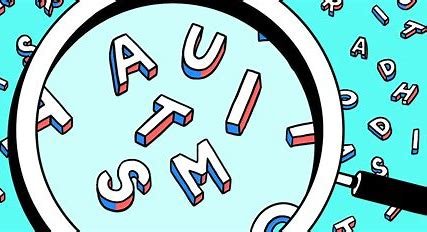Changes in brain's visual areas in infancy may precede autism diagnosis
30 May 2022 | Monday | News

Image Source : Public Domain
WHAT:
Infants who were diagnosed with autism spectrum disorder (ASD) at 24 months old had differences in the visual processing areas of the brain that were apparent at 6 months old, according to a study funded by the National Institutes of Health. The researchers theorized that disruption in visual processing could interfere with how infants see the world around them, changing how they interact with and learn from caregivers and their environment. These early changes could affect further brain development and play a role in ASD symptoms.
The study was conducted by Jessica Girault, Ph.D., of the University of North Carolina School of Medicine, Chapel Hill, and colleagues. It appears in the American Journal of Psychiatry.
The study enrolled 384 pairs of siblings, the oldest of which had been diagnosed with ASD. Previous research by the team found that younger siblings were more likely to develop ASD if their older siblings had higher levels of ASD traits. Researchers performed Magnetic Resonance Imaging scans on the brains of the younger siblings at 6, 12 and 24 months of age.
Among the 89 younger siblings who developed ASD, those whose older siblings had severe ASD traits had greater volume and surface area of the cerebrum, which controls speech, thought, emotions, reading, writing, and learning; larger surface area in the part of the visual cortex important for recognizing objects; and less mature connections in the splenium, which connects the brain's left and right visual cortices and plays a role in visual attention.
NIH funding was provided by the Eunice Kennedy Shriver National Institute of Child Health and Human Development, National Institute of Mental Health, and National Institute of Neurological Disorders and Stroke.
Most Read
- How Does GLP-1 Work?
- Innovations In Magnetic Resonance Imaging Introduced By United Imaging
- Management of Relapsed/Refractory Multiple Myeloma
- 2025 Drug Approvals, Decoded: What Every Biopharma Leader Needs to Know
- BioPharma Manufacturing Resilience: Lessons From Capacity Expansion and Supply Chain Resets from 2025
- APAC Biopharma Review 2025: Innovation, Investment, and Influence on the Global Stage
- Top 25 Biotech Innovations Redefining Health And Planet In 2025
- The New AI Gold Rush: Western Pharma’s Billion-Dollar Bet on Chinese Biotech
- Single-Use Systems Are Rewiring Biopharma Manufacturing
- The State of Biotech and Life Science Jobs in Asia Pacific – 2025
- Asia-Pacific Leads the Charge: Latest Global BioSupplier Technologies of 2025
- Invisible Threats, Visible Risks: How the Nitrosamine Crisis Reshaped Asia’s Pharmaceutical Quality Landscape
Bio Jobs
- Sanofi Turns The Page As Belén Garijo Steps In And Paul Hudson Steps Out
- Global Survey Reveals Nearly 40% of Employees Facing Fertility Challenges Consider Leaving Their Jobs
- BioMed X and AbbVie Begin Global Search for Bold Neuroscience Talent To Decode the Biology of Anhedonia
- Thermo Fisher Expands Bengaluru R&D Centre to Advance Antibody Innovation and Strengthen India’s Life Sciences Ecosystem
- Accord Plasma (Intas Group) Acquires Prothya Biosolutions to Expand Global Plasma Capabilities
- ACG Announces $200 Million Investment to Establish First U.S. Capsule Manufacturing Facility in Atlanta
- AstraZeneca Invests $4.5 Billion to Build Advanced Manufacturing Facility in Virginia, Expanding U.S. Medicine Production
News











